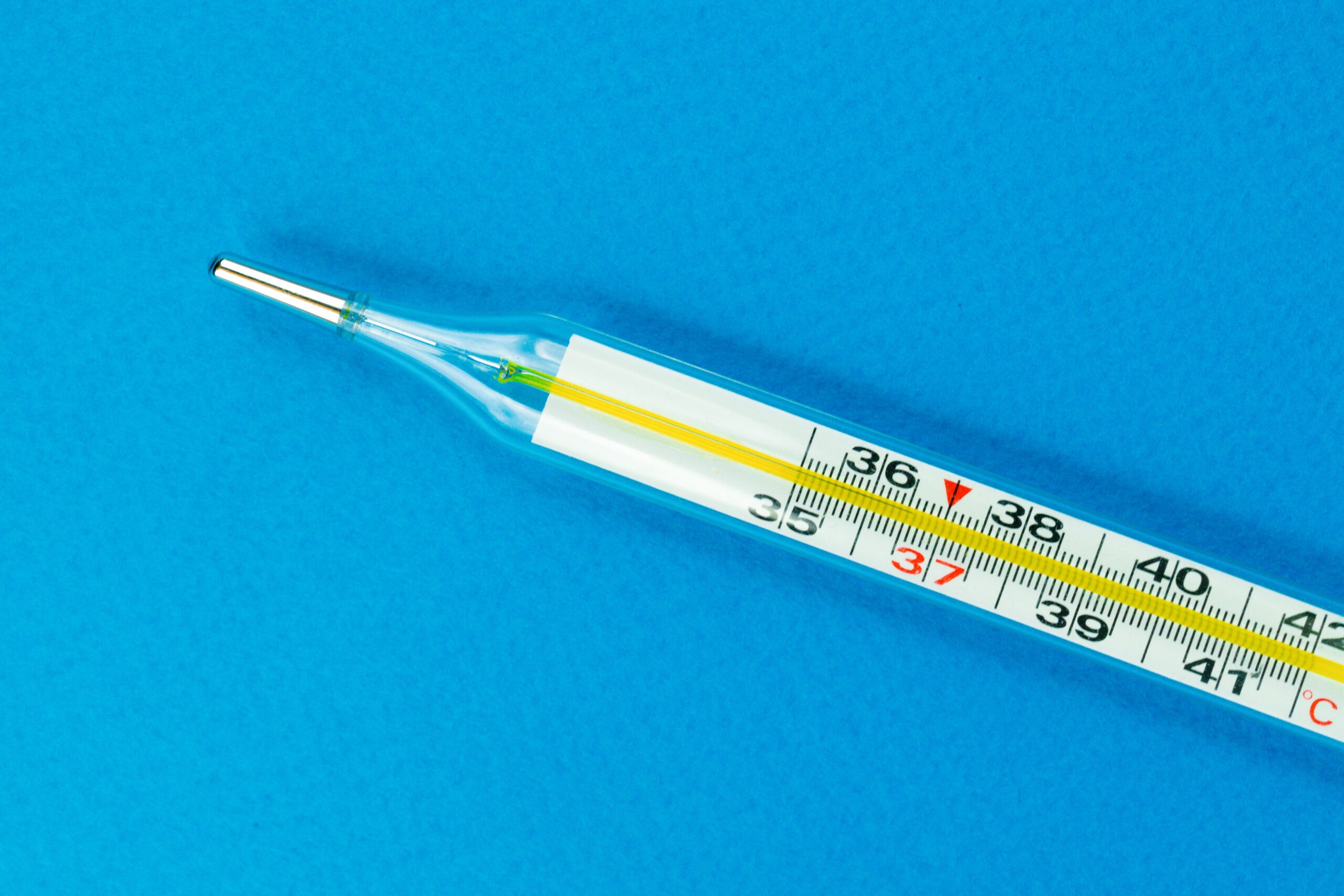Broken Thermometers – Poison?
by Grant D. Lackey, PharmD, FCSHP
Exposure to broken thermometers can lead to injury from the broken glass or plastic. Studies of children in emergency rooms have noted injury to the mouth, rectum, and ear from broken thermometers. There can be other minor dangers related to thermometers depending on the type of liquid inside them.
The non-silver, liquid-in-glass thermometers typically contain a colored alcohol. Contact with the skin or inside the mouth could cause minor irritation or a burning sensation that should go away quickly with rinsing. Drinking a few swallows of water or milk to rinse the substance down and keeping the person in an upright position in the event of vomiting is all that is needed.
Some liquid-in-glass thermometers contain a non-mercury silver substance Galinstan®. Galinstan liquid consists of tin, indium, and gallium. Galinstan is not toxic when swallowed as it passes through the digestive system without effect. Inhalation is also not a concern because there is no absorption through the lungs. Skin exposures to Galinstan can cause mild irritation.
Although unlikely, if the liquid is silver in color, it might be mercury. Spilled mercury has a unique appearance. It is a thick, shiny, fast-moving liquid metal that can break up into little balls that reform when pushed together. It is these properties of mercury that led to its nickname “quicksilver.” But not all thermometers with silver liquid contain mercury. If the thermometer has silver liquid and is not labeled as “mercury-free,” assume it contains mercury.
California and at least 12 other states – Connecticut, Illinois, Indiana, Maine, Maryland, Massachusetts, Michigan, Minnesota, New Hampshire, Rhode Island, Oregon, and Washington – have passed laws barring the manufacture, sale and/or distribution of mercury fever thermometers to help remove the danger of a public and environmental hazard.
Broken Thermometers have minimal toxicity:
- Foreign object Injury from the broken plastic or glass
- Stomach upset
- Oral or skin irritation
- The risk of poisoning from touching or swallowing mercury from a broken thermometer is low
- A broken, mercury-containing thermometer can be toxic if the fumes or vapors are inhaled
- Be sure to follow appropriate clean-up measures
Depending on the specific circumstances surrounding broken thermometers, most cases can be managed safely at home; however, always contact Poison Control at 1-800-222-1222 for assistance.

